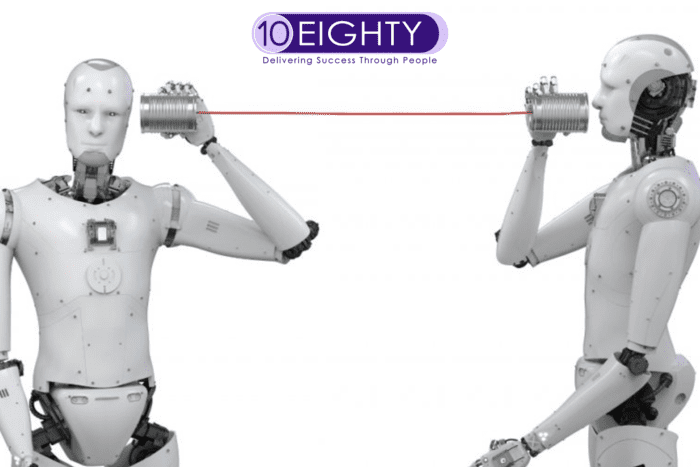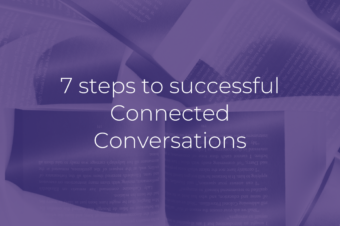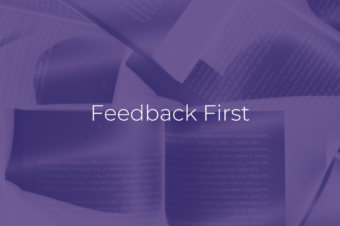
The annual performance review is an outdated concept that doesn’t adequately serve the modern workplace. At 10Eighty we believe that regular and constructive conversations with employees, which support their career development and performance at work, are much more effective and empower employee engagement.
Leadership needs to create a place where employees actually want, not need, to show up to work. Most managers pay at least lip service to the notion of employee engagement, and they may believe they know what motivates their team but many could do more and better. This is why it matters:
Teams whose managers spent at least 16 minutes of one-on-one time with each direct report per week had 30% percent more engaged direct reports than the average manager, who spent just 9 minutes per week with direct reports.
(Nielsen & McCullough, Microsoft Workplace Analytics)
If you want to see real cultural transformation take root you need to understand what makes your employees tick – what your top performers do, how your best managers create shared understanding and how the corporate culture drives productivity, innovation and agile performance in a super-competitive landscape. Think about your people and how to improve their lives at work and make the organisation more effective.
The challenges are real but the opportunities are huge. Source the right employees for the organisation, ensure they are engaged and excited, put them on the best career path, and make them as successful and productive as possible.
Put your people first
A strengths-based and employee-centric approach allows managers to design the enterprise around people, not production, an approach well suited to knowledge workers who are used to determining for themselves how they work and taking ownership of their career pathways.
Research shows that traditional performance reviews demotivate people and don’t improve employee performance. Gallup found that only 29% of employees agree that the performance reviews they receive are fair, and just 26% agree that they are accurate. A range of major organisations like Deloitte, Microsoft and Netflix have dropped their annual appraisal process in favour of alternative ways to manage performance.
Time with leaders and managers is often a key factor of employee engagement and can indicate a good coaching and development culture where managers are focused on developing their employees. Such interaction facilitates open communication, feedback cycles, and opportunities for growth when managers collaborate with their teams and are available to their employees.
Manager one-to-one meetings are crucial to employee development. The level of day-to-day collaboration between managers and team members can indicate whether employees feel empowered to take initiative and work independently. Microsoft Analytics have found that there are some fascinating insights when engagement scores are compared with behavioural data in terms of what engaged employees actually do. One of the biggest indicators of engagement is manager behaviour and this is consistent with Gallup reports about managers being the most important reason why people stay or leave a company. Microsoft found that there is a really strong case that shows regular, solid one-on-one time between the manager and an employee is the primary indicator of whether an employee will feel valued by the company, will be able to connect their work to the company’s mission, and to understand their role in the bigger picture.
An employee’s network health is a key indicator of engagement, a consistent gauge of successful employees, regardless of their role or level indicate the presence of cross-function collaboration or silos within an enterprise. Organisational productivity is defined by employee productivity – how they spend their time and who they spend it with.
Simple data from email and calendar functions can provide valuable information about how effectively management are communicating with people via emails and meetings – a window into how the organisation works and its culture. If junior level employees are spending 80% of their meeting time at meetings where their manager is also present, and the percentage of their actual communications that are proactive, not reactive, is very low, then that’s a good indicator of a culture of micro-management. What you want is a culture where junior employees have the right level of coaching and mentoring with a healthy level of leadership exposure, and a high degree of pro activity in their work and independence in their work, predicated on a healthy culture of empowerment.
Double-booking is something many people pass off as not that important, but it’s a bad manager habit that means employees have a lack of clarity as to whether a given meeting will be an effective use of time and energy. Double-booking meetings is one of those red flag manager behaviours highly associated with poor employee engagement.
Optimum performance
People want feedback in order to improve their performance and enable personal development but don’t want a retrospective critique of past performance. They need forward-looking guidance and encouragement that enables a proactive approach to career management. The Connected Conversations concept facilitates the evolution of performance review over time, rather than as a one-off annual event; as a concept this is in line with research on making the process more relevant and effective.
To engage and motivate employees the organisation adopts an employee-centric approach to sculpt roles that enable optimal employee performance according to the Intelligent Career theory which underpins the Connected Conversation method:
• What’s important to the employee?
• What do they like going and what are they good at?
• Who do they know? Does the employee have a network that will support and enable their aspirations, development and personal brand?
The model is about playing to people’s strengths, and this will result in a productive and engaged employee base which affords a more sustainable business, an agile and faster growing business.
How the Connected Conversations approach will benefit your organisation
• ROI – Employee engagement drives profitability, customer satisfaction and shareholder value. The Work Foundation claim an increase of 10% in employee engagement will put an extra £1,500 per person on average to the bottom line of your business.
• Engagement – the correlation between business performance and employee engagement is well known. Implementing Connected Conversations is good for your business and good for shareholders.
• Employee Experience – when an organisation is employee-centric, their employees will be more motivated and will stay in role longer, leading to enhanced profits and added value for the organisation.
In conjunction with partners Marshall E-Learning, we designed the Connected Conversations e-learning course to equip managers with the skills needed to give constructive feedback, to motivate employees and ensure they achieve personal and organisational goals.
The course empowers employers to be ‘people-centric’ with the aim of nurturing and developing employees’ skills and confidence; an approach that enables employees to manage their career according to the Intelligent Career Model which describes how organisational and employee needs are connected and mutually beneficial.
Our interactive learning package includes high-quality video scenarios and discussions on best practice in a contemporary performance and appraisals system.
Want to learn more? Watch this short video clip: https://www.youtube.com/watch?v=oXRuFquEEMk&t=8s
For further information and to book a free, no obligation demo, please contact us on 0207 947 4130 or email info@10eighty.co.uk
Nielsen, C. & McCullough, N. 2018 How People Analytics Can Help You Change Process, Culture, and Strategy, Harvard Business Review








